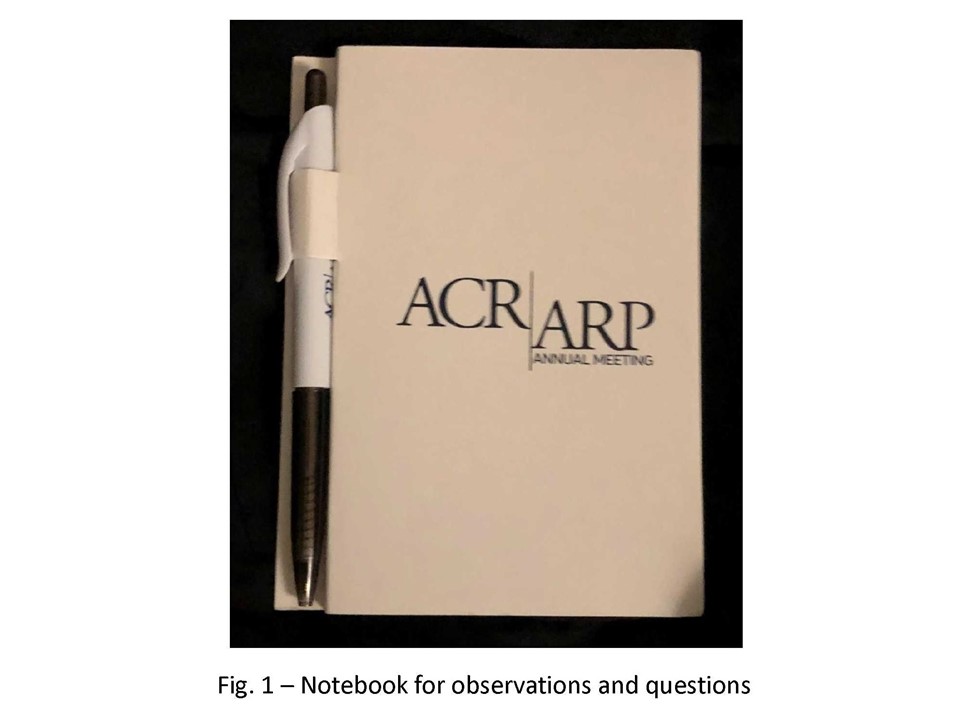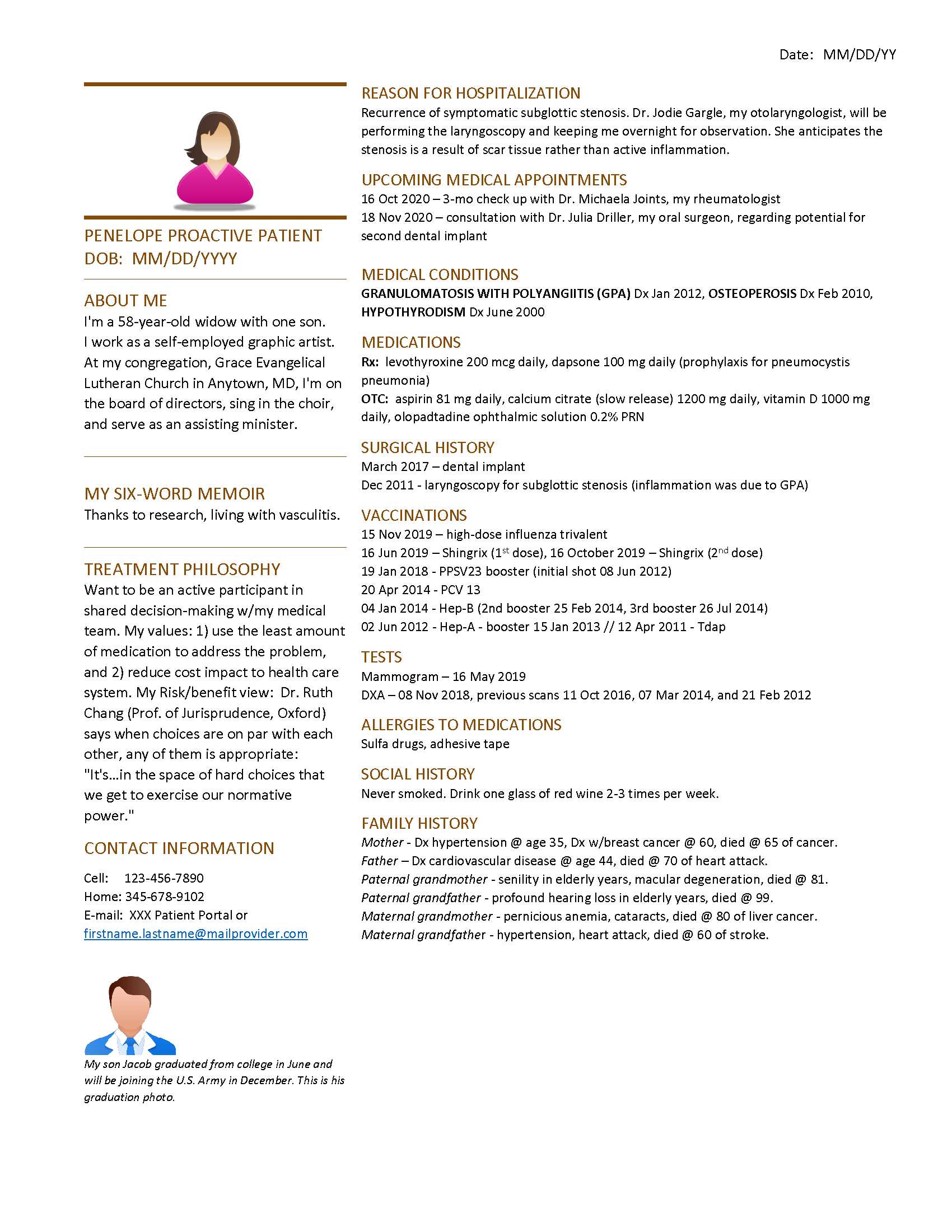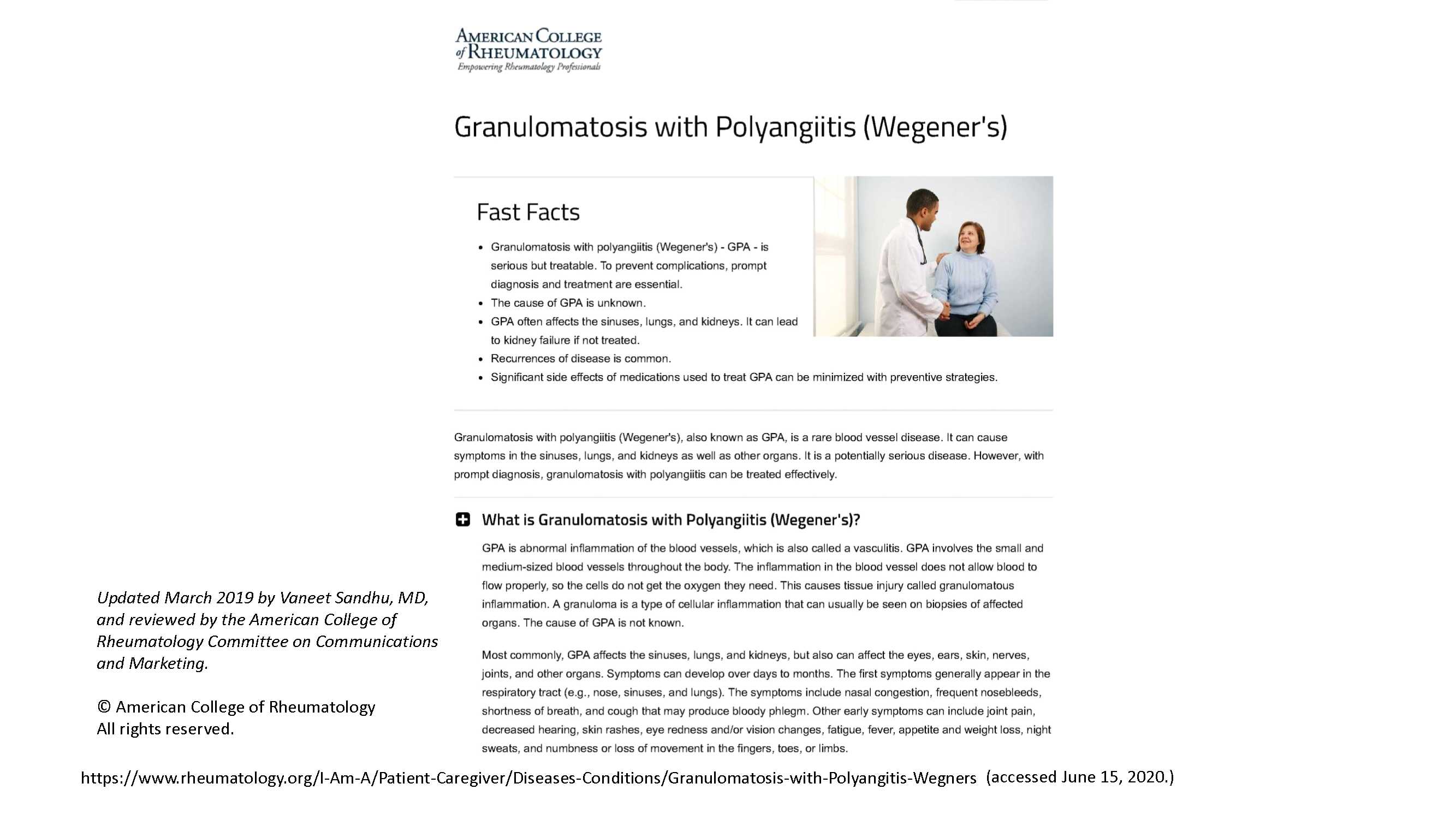Session Information
Date: Sunday, November 8, 2020
Title: Patient Perspectives Poster
Session Type: Poster Session C
Session Time: 9:00AM-11:00AM
Background/Purpose: For over two years, I experienced a variety of disparate symptoms including: joint aches, sinus congestion, shortness of breath and chronic cough. An episode of hemoptysis led to laryngoscopy in December 2011 and a diagnosis of subglottic stenosis (SGS). Test results showed a high ANCA titer. Referral to a rheumatologist resulted in a diagnosis of Granulomatosis with Polyangiitis (GPA). Eight years later, a recurrence of SGS required another laryngoscopy. My hospital experience the second time allowed the use of a high-tech tool for communication with the health care team.
Intervention:
I’ve used both low-tech and high-tech tools to enhance communications with my hospital care teams. For both my 2011 and 2019 surgeries, I used a small notebook with attached pen (Fig. 1) to document my observations and questions. Following my 2011 surgery, I was told to rest my voice. After I pressed the call button in my hospital room, a disembodied voice asked “What do you need?”, and I squeaked out a response. In 2019, however, I sent multiple text messages to myself on my mobile phone the night before surgery. The next day in my hospital room after surgery, I used the text-to-speech capability of the phone to “read aloud” a text through the built-in speaker, e.g., “I would like an orange popsicle, please.”
Writer and mother Shannon Dingle shared on her twitter feed in June 2019 a picture of a “health resume” she uses to help remember important information to share with her doctors. Physicians responded favorably, and said they wished more patients used such resumes. Borrowing her idea, I’ve started to provide a resume to each new health care team member I see (template in Fig. 2), whether at a clinic, ER, or hospital visit.
Maintenance:
Being hospitalized with a rare disease at an academic medical center often results in many visitors for rounds. Once, when hospitalized for a relapse, there were 14 people across the room at the foot of my bed. I gave a medical student a copy of the ACR patient education brochure on GPA (Fig. 3) as a way to share information about my rare disease. Use of low- and high-tech tools has fostered improved communication in my interactions with my health care team in both clinical and hospital settings.
Quality of Life:
I’m deeply grateful to the team of medical professionals who work in partnership with me to monitor, manage, and treat my GPA. Fortunately, my disease has not flared since September 2013. I’m a lifetime member of the Vasculitis Foundation, a patient advocacy group. In 2014, I joined a natural history study in the Vasculitis Translational Research Program at the National Institutes of Health. My six-word memoir is: “Thanks to research, living with vasculitis.”
Reference:
Naftulin, Julia (2019, June 21). Woman’s ‘health resume’ is a hit with doctors. Microsoft News (msn) lifestyle.
Retrieved from: https://www.msn.com/en-us/health/medical/womans-health-resume-is-a-hit-with-doctors/ar-AADelc4 (accessed June 15, 2020)
 Fig. 1 – Notebook for Observations and Questions
Fig. 1 – Notebook for Observations and Questions
 Fig. 2 – Health Resume Template
Fig. 2 – Health Resume Template
 Fig. 3 – ACR Patient Education Brochure for GPA (page 1 of 3 pages shown)
Fig. 3 – ACR Patient Education Brochure for GPA (page 1 of 3 pages shown)
To cite this abstract in AMA style:
Hakkarinen I. Low- and Hi-Tech Tools for Enhancing Patient-Hospital Care Team Communication in the Context of Rare Disease [abstract]. Arthritis Rheumatol. 2020; 72 (suppl 10). https://acrabstracts.org/abstract/low-and-hi-tech-tools-for-enhancing-patient-hospital-care-team-communication-in-the-context-of-rare-disease/. Accessed .« Back to ACR Convergence 2020
ACR Meeting Abstracts - https://acrabstracts.org/abstract/low-and-hi-tech-tools-for-enhancing-patient-hospital-care-team-communication-in-the-context-of-rare-disease/
